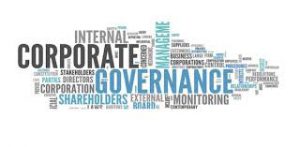When it comes to claiming R&D tax credits, many business managers assume that their accountant is best-placed to handle the claim while they provide the technical input.

Furthermore, there’s often an automatic assumption by many accountants that if they have the correct technical information, a claim is fairly straightforward.
Admittedly, the fact that any limited company developing new products, technology or processes may be eligible and can claim for up to two accounting years retrospectively, sounds straightforward enough.
But, even when a business owner or director feels he or she can identify R&D projects better than anyone else, scoping them in the context of the R&D tax criteria is not that simple. It requires technical understanding combined with an in-depth knowledge, without which the numbers might not add up.
Therefore, the reality is that presumptions can fall way short of the need for an in-depth understanding of what potential R&D activity may or may not fit within the context of the current legislation.
Take the meaning of R&D in the context of R&D tax relief; an issue that isn’t simple to handle. R&D in this case is not limited to the R&D department, as HMRC defines it as work that achieves a scientific or technological advance when scientific or technological uncertainty exists.
This can include achieving an increase in overall scientific or technological knowledge or capability; significantly improving products, processes, materials or services through scientific or technological development; or using science or technology to duplicate the effect of an existing product or process in a new or appreciably improved way.
For instance, a whole project might not qualify but the element addressing the technological uncertainty does. That can include planning and managerial activities in some instances.
To be sure a claim is justifiable and as beneficial as it can be, an accountant must fully understand the detail of the HMRC guidelines. That’s a 15-part manual and, once you have read through it all, you will need the technical expertise to define, quantify and support a claim.
This is where a specialist partner that lives and breathes R&D and has extensive experience in supporting companies in funding, resourcing and exploiting R&D would make the process more efficient and more profitable for all parties.
With Stanley Carter R&D, clients often find that the objective, expert evaluation and broader experience in supporting technology companies can fundamentally change the way they look at and approach their R&D strategy going forward.
For more information on how we can help you with your R&D claim send us an email on info@stanleycarter.co.uk or check our website for further details www.stanleycarter.co.uk






